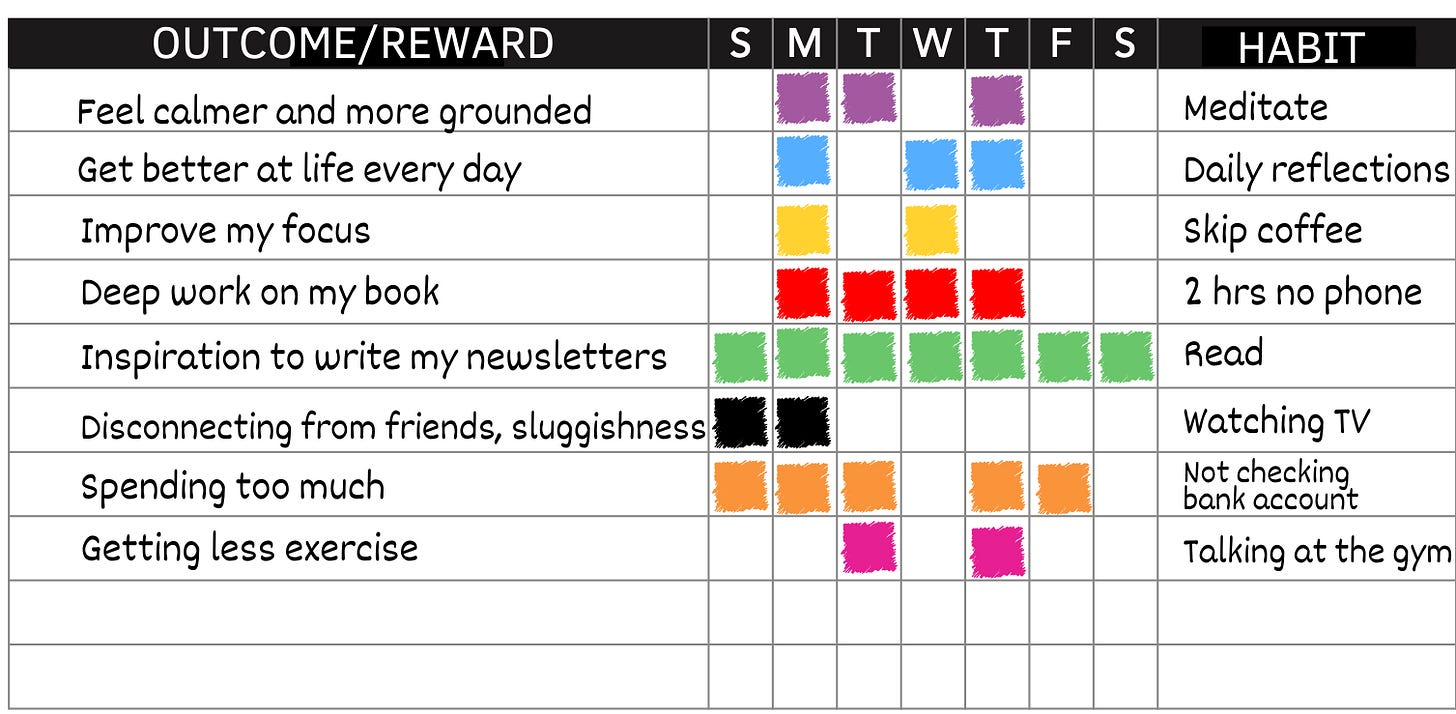Why You Need Essentialism
What does it mean to be an essentialist? And why it helps everything.
Modern society is terrible at essentialism. Our world is plagued by consumerism, not just in purchasing habits, but in quality of life. We have more friends through social media, more options online, and access to more places and jobs than ever before. Just because the future has brought us more, more, more doesn’t mean that’s progress.
5. We Need Essentialism Because We’ve Forgotten What Matters
People are less happy than ever before and report feeling more busy than ever before.
Early 20th-century British economist John Maynard Keynes theorized technological advancements would reduce working hours. Keynes may have played a key role in the development of modern economic thought, but his predictions were unfortunately incorrect. Couple technology with consumerism and a growth-obsessed economy, and you don’t get less work you get more.
Essentialism means focusing on what truly matters, stripping away the non-essential to make room for purposeful living and it’s harder than ever to be a true essentialist, but it will simplify your life and bring you greater meaning than you’ve had before.
4. Focus on Priorities, Not Productivity
You can’t have it all.
We unlock a path to greater fulfillment and satisfaction by focusing our efforts, not by doing everything were told to do: start a YouTube, have an Instagram, go to networking events, start a blog, spend time with friends, call your family, exercise, read, listen to podcast, the list goes on…
For 7 years, I pursued a career as a professional rock climber and I gained a lot of success. I even started to coach other athletes. The biggest hurdle I noticed among athletes was their lack of focus. They had no time to work on their climbing, yet continually judged themselves for not doing better. I, on the other hand, was working any job to keep me afloat and spending all my free time focused on climbing. I researched climbing, planned projects, stretched, did injury-preventative exercises, did yoga, targeted my climbing with training plans, and climbed outside about 4x a week. None of my athletes were dedicating that kind of time because they had too much going on.
What are you letting get in the way? What can you delete to sub for what you really want?
3. Decluttering Means Freedom
You can declutter more than just your possessions.
Few things you do probably have value to you, but we are often too busy to notice. Discover the freedom that comes with decluttering your life by cutting things out.
Analyzing the purpose of our habits is an incredible way to understand how the things we do add up. You may have read The Compound Effect. The book describes a principle that small actions, consistently done over time, can lead to significant cumulative results, but this can work for or against you. Don’t just do this exercise with your good habits, do this with all your habits. Bad and good. Write down everything you do in a that’s a habit and write out the reward or outcome.
Comment on this post if you want a free blank printable version of this tracker.
2. Embrace What Brings You Joy and Meaning
“To follow, without halt, one aim: there is the secret to success.” -Anna Pavlova
It’s no small thing to figure out what to say “no” to and what to focus on. Look inside yourself and ask yourself these questions:
What have I always wanted to do but haven’t yet done?
If I died in 5 years, what would I want to have done in those years?
If I were to die in 1 year, what would I spend my time doing?
What brings me the most joy in life?
These questions can be hard to answer. Sometimes it helps to think about your most treasured memories. What were you doing? How did you feel? How can you bring more of that into your life now?
1. The Art of Saying “Yes” and “No” but mostly “No”
This year, I’m practicing the art of JOMO, the Joy of Missing Out. I’m going to miss out because I’m tired of not accomplishing the things I truly care about (book writing). There is a price to saying “yes.” You are spending time fulfilling other people’s desires. The time you spend saying “yes” and doing things for others (even your boss) is time you are trading for what you aren’t doing that you care about.
What are you going to trade this year for what you truly care about doing?







Love this! So great to hear this from a fellow climber!